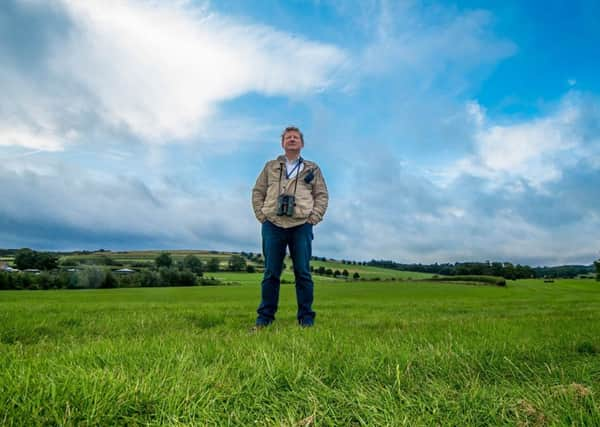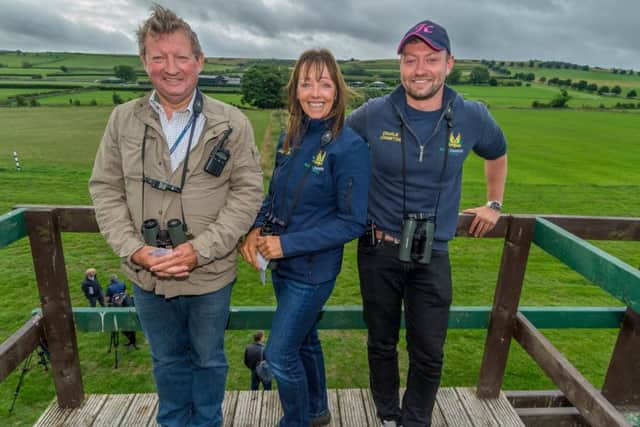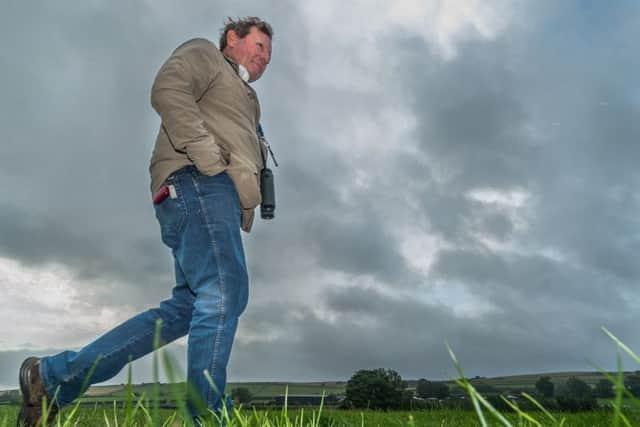Weekend Interview: History man Mark Johnston enjoys defying the odds


Veterinarian, businessman, pilot and pragmatist who has applied a scientist’s logic to his life’s work, he has turned his Middleham stables into the Northern Powerhouse of racing.
Yet, as he stands on the brink of saddling his 4,194th winner, and breaking Richard Hannon senior’s all time record, he’s still content to be known – first as foremost – as a trainer. “I get much more annoyed when people say ‘Mark Johnston is different, he runs it like a proper business’,” the 58-year-old told The Yorkshire Post during a frustrating week of near-misses which saw him three short of the landmark, after Rufus King won at Chelmsford last night.
Advertisement
Hide AdAdvertisement
Hide Ad“It doesn’t matter whether you are Mark Johnston or someone employing two people, it’s still training horses.


“I could have done other things, but my father said to me, when I was quite small, ‘there is money in muck as long as you know about muck’.”
The figurehead of a major training operation, where wage bills alone are £3.5m a year, Johnston has come a long way from his childhood in Scotland where Saturdays would be spent accompanying his father Ronald, who once worked as a night porter, to the bookies on the East Kilbride council estate and then watching the racing on TV.
Yet, while he always had a single-minded determination to become a trainer, his father, and mother Mary, insisted that he took a degree so he had a fall-back option if his dreams were not realised. And while no British trainer has been so prolific – Johnston’s first winner came as recently as July 1987 – he says his veterinary background has helped.
Advertisement
Hide AdAdvertisement
Hide AdSpeaking after watching some of his 250 horses on Middleham’s gallops, he ventures: “It’s not being a vet, but thinking like a scientist matters. Don’t kid yourself. Don’t cut corners.


“The most disappointing thing is the ignorance of people who will give things to horses with no evidence it’s going to make them go any quicker. They’re all looking for something to turn lead into gold.”
This is quintessential Johnston whose simplicity – embodied by his stable’s motto ‘Always trying’ – has come a long way from his early days in Lincolnshire galloping horses on a RAF target practice range while his wife Deirdre taught at a school to help make ends meet.
Famously told by the Jockey Club when he applied for a licence “just because you’re a vet doesn’t mean you can train a horse”, he’s used to proving people wrong and his abiding memory of his first ever winner – Hinari Video – was getting home from Carlisle and putting Teletext on.
Advertisement
Hide AdAdvertisement
Hide AdNow his office is surrounded by televisions showing racing replays while he plots entries and liaises with a team of trusted yard managers who supervise the wellbeing of groups of horses.
“There were no racing channels in those days, no replays, and if you wanted a video you had to send off for one and it came in about three weeks’ time. So we watched Teletext all night!” recalled the trainer who has long enjoyed the patronage of Dubai ruler Sheikh Mohammed’s family.
A fastidious man, Johnston still recalls the doubters who said he wouldn’t last when he moved to Middleham. However he said this corner of Wensleydale would be the home, once again, of Classic winners and both Mister Baileys and Attraction won blue riband races.
He also admonishes himself for not having an Epsom Derby win on his CV, though Dee Ex Bee was second this June. “It’s my own bloody fault,” he says before pointing out that Aidan O’Brien has more runners in the blue riband race each year than he has had in his whole career.
Advertisement
Hide AdAdvertisement
Hide AdAnd then Johnston, who has saddled at least 100 winners for each of the last 25 seasons, explains his philosophy and why he will struggle to become champion trainer because the title is decided by prize money. “Winners is what it is all about. I know when I have lots of winners that I will have a good season next year,” says the trainer who, on seven occasions, has won over 200 races in a calendar year.
“It matters to me (breaking the Hannon record). I wanted to do it, that’s for sure. I’ve always been the supporter of the trainers’ championship being on prize money. I think it is right, it’s the trainer’s job to get the most out of the horse in terms of class, value and prize money, even though I would have won 12 times if it was on winners.
“All owners want winners. It doesn’t matter what level you are talking about, they all want winners. To win more than anyone else, in less time than anyone else, shows something we have been claiming – we’re more consistent than any other yard.
“We’ve had our peaks and troughs right back to my first years in training. I remember a time when we had 28 horses in the yard and a lot of coughing. Even with 28 I remember saying, partly driven by overdraft, ‘28 can’t all be sick at once’. Two hundred can’t all be sick at once. That’s absolutely for certain. When I started, we were forever hearing trainers closing down for a month because they’d got a virus. We couldn’t close down for a month because we could have gone bust.”
Advertisement
Hide AdAdvertisement
Hide AdAsked if there’s a secret to success, he cited correspondence earlier that day with a prominent owner who wants their horse to run two more times this year before a winter off.
Johnston disagreed. “If the horse is well, run it. I can’t believe the number of people wanting to give them a break when there’s nothing wrong with them,” he said. “Next week it gets injured, whether on the racecourse or gallops, and it gives itself a break. So many of them get a break any way, whether you like it or not.”
As for influences, Johnston cites National Hunt’s winning-most trainer Martin Pipe – another outsider to racing who made it to the top – who he recently relegated to third on the all-time list.
“I think more than anybody, Martin Pipe was the guy who came at it with a blank sheet of paper, applied lots of logical, simple principles to it and revolutionised jump racing in the process,” he said.
Advertisement
Hide AdAdvertisement
Hide Ad“I’d be pretty sure he didn’t set out to have a front-running style, he just applied the simple logic that there is nothing to be gained by giving away ground and that acceleration costs you huge energy so don’t do it, don’t push their heads off and don’t put the brakes on. He ran them often, he ran them fit.”
Saying the word “legacy” is too strong to describe his accomplishments, Mark Johnston will, in time, hand over the reins to his son, and assistant, Charlie. Renowned and respected for his hands-on attention to detail, Johnston senior is one of the view high-profile trainers who still attends the races on a regular basis. As a pilot, and his own airstrip, he can be at Haydock in 20 minutes. “You are there trying to manage disappointment when they get beat. If a horse win, the owners are happy,” he adds. “The buzz of winning is not quite the same. The fear of failure is still the same. It’s never gone away.”
And never will.
The Mark Johnston story...
MARK Johnston was born in Glasgow on October 10, 1959.
He married his wife Deirdre in 1985 and the couple have two sons – Charlie and Angus.
He took out a trainer’s licence on March 2, 1987, and his first winner was Hinari Video at Carlisle on July 1, 1987.
Advertisement
Hide AdAdvertisement
Hide AdHis first Classic came when Mister Baileys won the 2000 Guineas in 1994 while the filly Attraction won four group One races, including the English and Irish 1000 Guineas, in 2004.
He has 43 Royal Ascot triumphs to his name and his best season came in 2009 when he saddled 221 winners. His stable’s motto is ‘Always trying’.